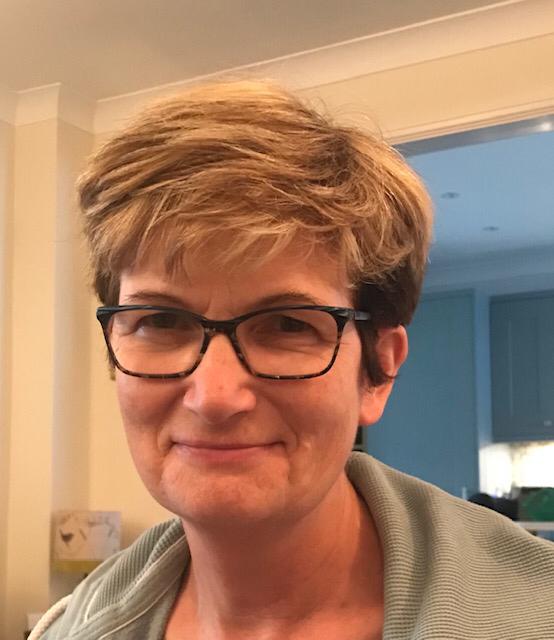About Dementia OK
 Sylvie Clayden established Dementia OK to offer care, support and care management advice for people with dementia and those who are compromised cognitively, their care givers and families.
Sylvie Clayden established Dementia OK to offer care, support and care management advice for people with dementia and those who are compromised cognitively, their care givers and families.
Sylvie is an HCPC registered Occupational Therapist based in the Pewsey Area,with experience spanning 30 years working with older people, specialising in dementia care for the past 8 years. She is a member of the Royal College of Occupational Therapists (RCOT) and had enhanced DBS Certificate no. 001865448320.
Additional Training:
SPECAL Care with Penny Garner: 2013
Dementia Friend & Champion 2014
Music and Mirrors with Heather Edwards 2014
" Lighting DARC - Dementia Awareness Reaching Communities" Dr Gemma Jones 2017
" Making Sense of Sensory Changes in Old Age and Dementia" Dr Gemma Jones 2018
Occupational Therapy Continuing Professional Development Show 2018
NES Online ACE-III Training 2018
Discussion, one to one: Professor Alison Wray; Dementia Communication expert
Discussion, one to one: Professor Stephen Westland; Colour Perception Professor
Successfully CPD Audited by HCPC: Reg No OT14983 CPD Audit No CPD011750 OCT 2019
Full one Day Certified First Aid Course with Lucy Worsley Feb 2023

Philippa Lackford is an HCPC registered Occupational Therapist
As a very experienced Health Care worker, Philippa Lackford is an HCPC registered Occupational Therapist and a member of the RCOT ( Royal College of Occupational Therapists)
She has worked for nearly 30 years for the NHS in mental health, in both inpatient and community settings, latterly specialising in the care of those over 65 with functional mental health needs, including people with cognitive impairment and decline.
Philippa is now able to offer older adults regular care support and treatment within 10 miles of Netheravon.
Full one Day Certified First Aid Course with Lucy Worsley Feb 2023
Both Sylvie and Philippa are able to offer a Care Management Service which may involve any of the following, occassionally co-working:
- Regular care giving with personalised care plan involving trips out or quality time at home.
- Consultative Care management advice
- Functional assessment
- Cognitively screen using the ACEIII (Addenbrokes Cognitive Assessment 2012 Version) alongside a functional report to be offered to GP and NHS Community Mental Helalth Partnership
- Holiday "sitting" for short term support
Mental health issues such as anxiety and low mood can emerge in later life, either as part of the aging process or as an aspect of some physical conditions such as Parkinson’s disease. Mental ill health can also be present alongside dementia/ cognitive decline. It is well documented that activities which have meaning, provide purpose and that stimulate the individual have a positive impact on their ability to function and wellbeing.
Care management is essential as this is a progressive disease resulting in a number of social and functional limitations.
De-stigmatising dementia is essential, particularly given the growing ageing poplution and the recognised need to improve diagnosis and particularly early diagnosis.
There are many misconceptions around the dementia diseases and there is a frequent belief that people with dementia are being difficult or simply not trying hard enough; this is rarely the case and I may be able to explain the rationale.
Dementia is an umbrella term used to describe a number of degenerative diseases of the brain affecting memory, logic and orientation; particulalrly and occassionally perception too.
Structural and chemical changes take place in the brain usually starting in and around a sea horse shaped structure called the Hippocampus, located on both sides of the brain. The most common dementia disease is Alzheimers, closely followed by Vascular, Lewy Body and Frontotemporal dementia; there are many less common forms.
Dementia does not start life as a mental health issue but often becomes one, particularly when individuals remain undiagnosed and not cared for in the right way. Positive and meaningful communication is essential with focus on what an individual is able to achieve in their daily lives and protection of their emotional memory. An almond shaped structure near the Hippocampus called the Amygdala is resonsible for filtering our emotion around memory and this remains intact for most of the disease progression; if this is protected the person with dementia can feel and ultimately function better; please do not underestimate the value of protecting the emotional well being of someone with dementia.
Living with dementia
Living with dementia can be extremely tiring for the individual and their carers. At times, inevitably, depression and a sense of isolation set in for both. It is vital that care needs are met effectively and that care givers have a break and spend time considering their own needs, thereby maintaining balance and a more relaxed relationship with the person for whom they care.